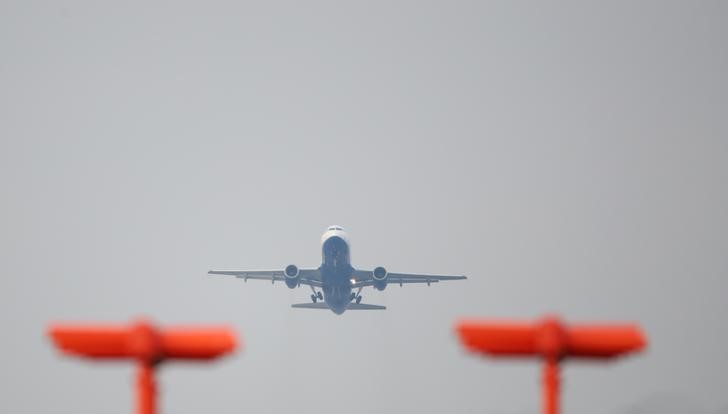By Sarah Young
LONDON (Reuters) - Britain's aviation regulator has stepped up planning for a "no deal" disorderly Brexit, identifying how many new staff would be needed and preparing safety systems to take on work now carried out by European authorities.
The Civil Aviation Authority had said in January it was purposely not planning for a scenario where it was excluded from Europe's safety body, "as it would be misleading to suggest that's a viable option".
Prime Minister Theresa May said on Friday the government would step up preparations for the possibility of Britain leaving the European Union without reaching a deal with Brussels. With only nine months left until Brexit, some authorities and companies are following suit.
On Tuesday the CAA published information on its plans to fulfil functions now delivered by the European Aviation Safety Agency, EASA, should that become necessary.
The CAA has consistently stated the most positive outcome is that Britain stays in EASA, and the government has said it wants to explore the terms on which that could happen.
Airlines and aerospace companies such as Airbus (PA:AIR), which makes the wings for all its passenger jets in Britain, are worried about Britain being excluded from EASA because the body approves planes and aircraft components.
As part of its "non-negotiated" withdrawal plans, the CAA could need to hire 30 to 50 new members of staff, a source told Reuters, adding n such jobs were advertised currently.
The CAA also said it would need to cover some regulatory processes itself if there is no deal.
"Our preparatory work includes adjusting existing systems so that they could continue to work in exactly the same way as now – but with the UK Government and the CAA fulfilling regulatory functions independently of the EU," the CAA said on its website.
"As an example, the CAA is creating the capability required for the UK to fulfil State of Design responsibilities independently of EASA should that be needed once the UK leaves the EU."
UK aerospace industry body ADS has said it would take approximately 5-10 years for the CAA to rebuild its safety regulation capability to take over from EASA.
The CAA said the assumptions it was making to plan for a "no deal" Brexit did not represent its view of the most likely, or desirable, outcome of negotiations and do not reflect government policy.
May's plan is for a "business friendly" Brexit, based on her proposal for "a free trade area for goods". She still needs agreement from the EU on her proposal, however, and is battling to reassert her authority at home after two top cabinet members quit and attacked her Brexit plans.

Airlines are also concerned about air transport agreements which govern rights to fly between two countries, as Britain benefits from the EU's Open Skies agreement with the United States, but the CAA noted that it had no role in these as they are negotiated directly between governments.